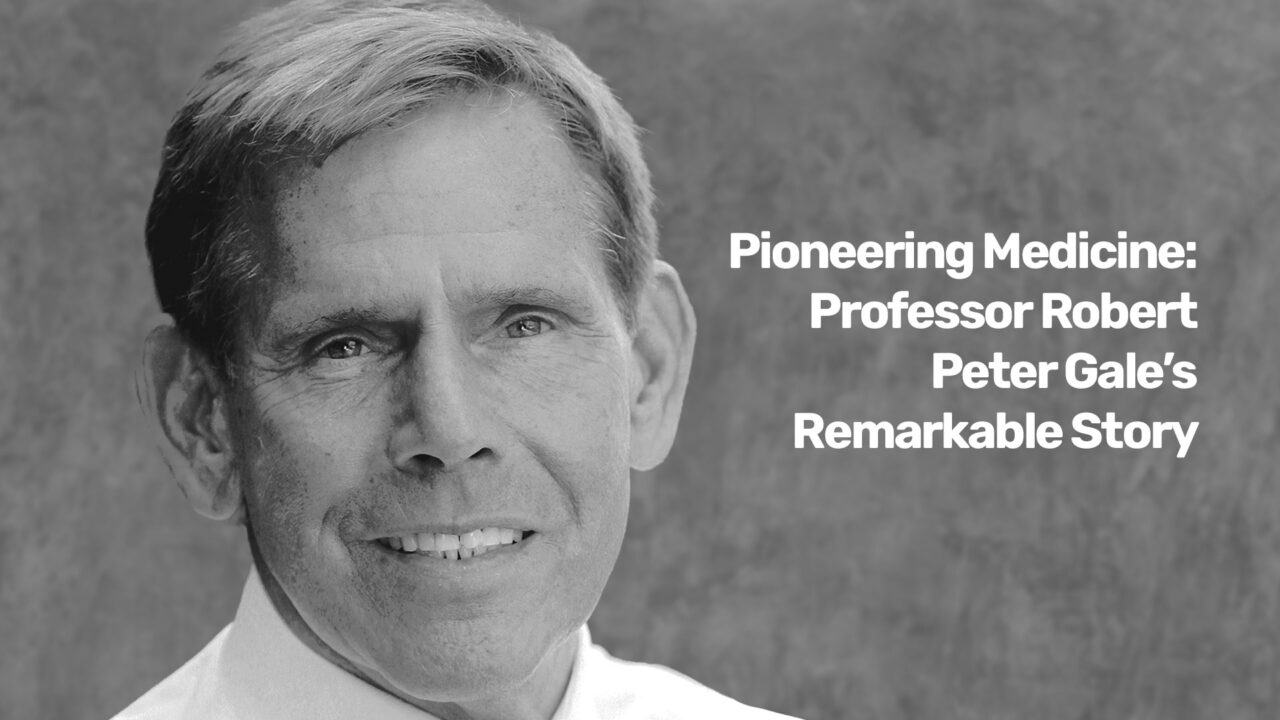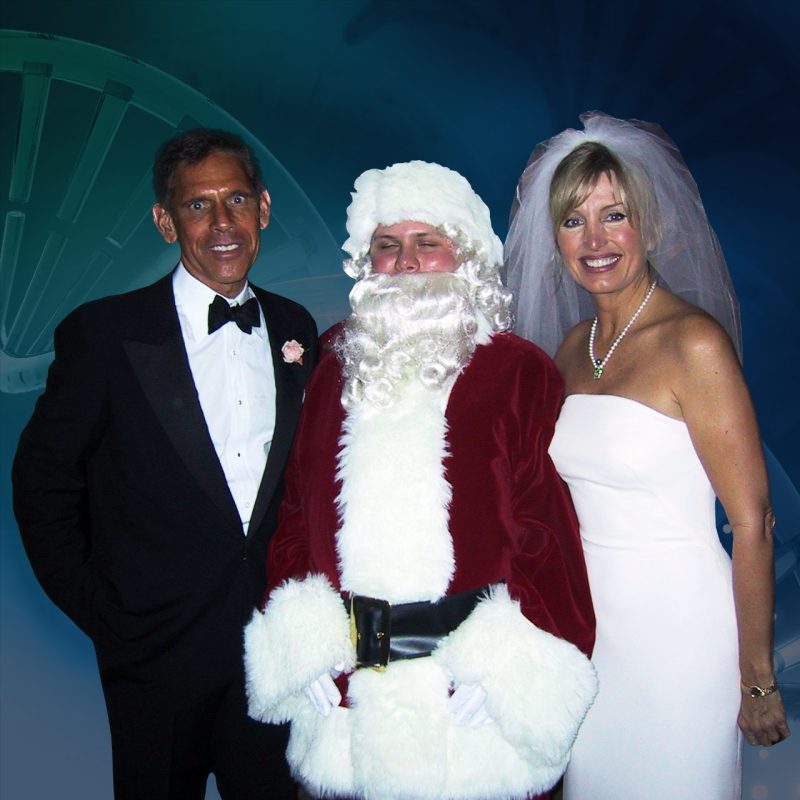
OncoInfluencers: Dialogue with Robert Peter Gale
OncoDaily is thrilled to launch a groundbreaking new series, “OncoInfluencers: Dialogues”. This initiative aims to bring you in-depth conversations with the most influential figures shaping the world of oncology.
To kick off our series, we’re honored to welcome a true luminary in the field, Prof. Robert Peter Gale. His monumental impact on hematology and oncology is globally recognized. A scientist and humanitarian, Prof. Gale is credited with numerous groundbreaking scientific discoveries and has authored over 1,000 scientific articles and 20 books. He currently serves as the Editor-in-chief of the Leukemia Journal and has received numerous prestigious awards and distinctions. Among these are the Presidential Award, the New York Academy of Science, the Scientist of Distinction Award from the Weizmann Institute of Science, the Olender Peace Prize, the City of Los Angeles Humanitarian Award, and the Myasthenia Gravis Foundation Humanitarian Award. His contributions have been so significant that he has even been nominated for the Nobel Peace Prize.
Prof. Gale’s influential work extends beyond academic research. He has co-authored popular books on topics such as Chernobyl and US nuclear energy policy, including “Final Warning: The Legacy of Chernobyl” (with Thomas Hauser) and “Radiation: What It Is, What You Need To Know” (with Eric Lax). He received an Emmy for his work on a 60 Minutes special report about Chernobyl.
In addition to his professional accomplishments, he is a dedicated father of six children and an active marathon runner.
Stay tuned as we delve into enriching dialogues with Prof. Gale and other influential figures in oncology, only on “OncoInfluencers: Dialogues”.
By Tatev Margaryan (Yerevan, Armenia)
Dr. Gale, your journey in medicine and humanitarian work has been truly extraordinary. Can you take us back to the early days of your career and share a pivotal moment or experience that ignited your passion for helping others and set you on this remarkable path?
In university I was aware a diagnosis of leukaemia was a death sentence and I resolved to do my best to try to change it.
Throughout your extensive medical career, you have made groundbreaking contributions in areas such as bone marrow transplantation and cancer treatment and care. Can you share a specific breakthrough or discovery that you are particularly proud of, and how it has impacted the lives of patients around the world?
In 1983 my colleagues and I at the Weizmann Institute in Israel were able to molecularly clone the mutation (BCR::ABL1) which causes chronic myeloid leukaemia (CML). Once the genetic sequence was know it was possible to predict the chimeric protein it encodes (P210BCR::ABL1) and its biochemical function (a tyrosine-kinase). From this it was possible to develop an inhibitor (imatinib) which has resulted in the operational cure of many or most people with CML
Your involvement in responding to nuclear accidents and natural disasters, including Chernobyl and the 1988 earthquake in Armenia, demonstrates immense courage and dedication. What drives you to be on the frontlines, risking your own safety to provide medical aid and support to those in need?
Like most physicians I believe (incorrectly) we are immune from adverse consequences. In the instances of Chernobyl and Fukushima I knew I had expertise which could potentially save lives. In the instance of the Armenia earthquake I thought my contacts with Soviet leaders (Gorbachev and Ryzhkov) could help us assist the victims.
Balancing a career in medicine, research, and healthcare management can be demanding. How do you manage to juggle these different roles and find time for your other passions and interests outside of your professional life?
I like to work and I enjoy challenges.
Over the course of your career, you have likely encountered various challenges and setbacks. Can you share a difficult moment or obstacle you faced, and how you overcame it? What advice would you give to others in overcoming adversity and persevering towards their goals?
The most challenging thing we face as physicians is when are attempts to help someone fail. But we have no choice but to press on. Sometimes bureaucracy can be an obstacle but I don’t need to remind anyone in Armenia of this.
Throughout your experiences in medicine and humanitarian aid, have there been any encounters or stories that have deeply touched your heart or left a lasting impact on you? Can you share one such story with us?
I remain in contact with many of the Chernobyl firefighters we treated. I’m always heartened when I receive a Christmas card from them showing their families, children and now grandchildren. And of course there is great joy seeing people 30 or 40 years after we cured them of leukaemia. (Whoever saves a single life is considered to have saved the whole world.)
With your wealth of knowledge and experience, what are your thoughts on the future of medicine and healthcare? Are there any emerging trends or advancements that you find particularly promising or exciting?
This is an very interesting and exciting time in cancer research and therapy. In some instances we are turning cancer into a chronic disease. Targeted therapies, immune therapies, monitoring using cell-free DNA and many other interesting areas.
Finally, what do you hope your legacy will be? How would you like to be remembered for your contributions to medicine, research, and humanitarian efforts?
I am reminded of a quote from Woody Allen when asked would he like to live on in the hearts and minds of his fans. He said: I’d rather live in my apartment. But of course, our most important professional legacy is successes of people we have trained.

-
Challenging the Status Quo in Colorectal Cancer 2024
December 6-8, 2024
-
ESMO 2024 Congress
September 13-17, 2024
-
ASCO Annual Meeting
May 30 - June 4, 2024
-
Yvonne Award 2024
May 31, 2024
-
OncoThon 2024, Online
Feb. 15, 2024
-
Global Summit on War & Cancer 2023, Online
Dec. 14-16, 2023
